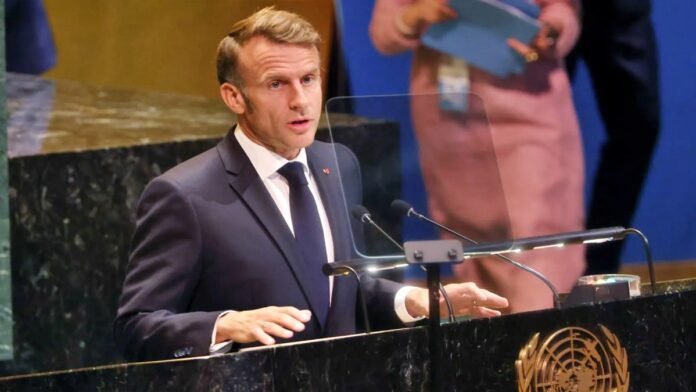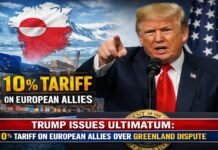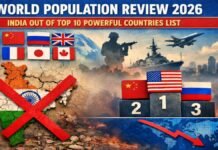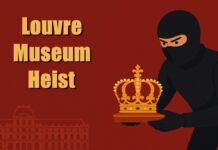
Key Points
- French President Emmanuel Macron has officially announced that France recognizes Palestine as an independent nation, a move made at a UN summit co-chaired by France and Saudi Arabia.
- The announcement is part of a wave of new recognitions, with the UK, Canada, Australia, Portugal, and Belgium also taking the landmark step, deepening Israel’s international isolation.
- The decision drew a strong backlash from Israel and the United States, who boycotted the summit. Israel’s PM called it an “absurd reward for terrorism,” while the US Secretary of State labeled it a “gift to Hamas”.
- The Palestinian Authority hailed the move as a “historic and courageous decision,” expressing hope it will advance the cause of peace and the two-state solution.
- While largely symbolic, the recognition puts significant diplomatic pressure on Israel as its military offensive in Gaza continues and West Bank settlements expand.
New York: In a historic and defiant move, French President Emmanuel Macron announced on Monday that his country officially recognizes Palestine as an independent nation. The declaration was made at a United Nations conference in New York, co-chaired by France and Saudi Arabia, aimed at reviving the long-stalled two-state solution to the Israeli-Palestinian conflict. Macron’s announcement was met with a standing ovation from the Palestinian delegation and applause from many of the more than 140 leaders present.
“In keeping with France’s historic commitment to peace… I formally declare today that France recognizes the state of Palestine,” Macron stated, adding, “We must exhaust all possibilities to maintain the viability of a two-state solution”. He framed the decision as the “only solution that will enable Israel to coexist peacefully” and a “setback for Hamas”.
A Cascade of Recognition and International Reaction
France’s decision came amid a wave of similar declarations from other Western powers. On the eve of the summit, the United Kingdom, Canada, Australia, and Portugal also recognized Palestine. They were joined by Monaco, Malta, Luxembourg, and Belgium, which also announced recognition, though Belgium’s is conditional on the release of hostages and the dismantling of Hamas.
This surge in recognition isolates Israel and its closest ally, the United States, on the world stage. UN Secretary-General António Guterres endorsed the momentum, asserting that Palestinian statehood “is a right, not a reward” and the “only escape from this turmoil”. The Palestinian Authority praised the French decision as a courageous step aligned with international law.
Fierce Opposition from Israel and the United States
Both Israel and the US boycotted the UN summit, with Israeli officials dismissing it as a “circus” and a “charade”. Israeli Prime Minister Benjamin Netanyahu asserted his government would fight what he called “slanderous propaganda” and that recognizing a Palestinian state would “jeopardize our existence and serve as an absurd reward for terrorism”. Israel’s far-right National Security Minister, Itamar Ben Gvir, called for “immediate counteractions,” including the annexation of the occupied West Bank.
The US administration under President Donald Trump had actively tried to prevent the recognitions. Secretary of State Marco Rubio publicly lambasted the move as a “gift to Hamas” that would complicate efforts to end the conflict. With France’s announcement, the US is now the only permanent member of the UN Security Council that does not recognize Palestinian statehood.
Symbolic Move Amidst Ongoing Conflict
While the recognitions are a significant diplomatic milestone, they are unlikely to bring immediate change on the ground. Israel’s military offensive in the Gaza Strip, which has killed over 65,300 Palestinians, continues, as does the expansion of settlements in the occupied West Bank. President Macron noted that opening a French embassy in Palestine would be contingent on a ceasefire, the release of all hostages, and significant reforms within the Palestinian Authority.
Palestinian President Mahmoud Abbas was expected to address the conference via video after he and other senior Palestinian officials were reportedly denied visas by the United States to attend in person. The path to full UN membership for Palestine remains blocked by the United States’ veto power in the Security Council.




















































